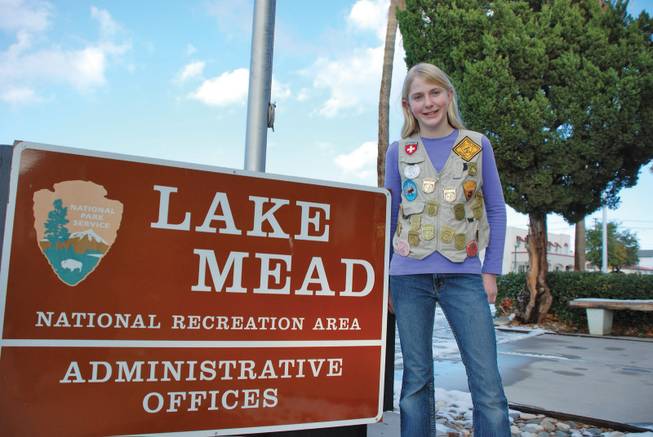
Courtesy photo
Jana Williams, now 12, was in first grade when she became the first youngster to complete Lake Mead National Recreation Area’s Junior Ranger program in 2002.
Monday, Jan. 5, 2009 | 3:56 p.m.
While in the first grade, Jana Williams became the first youngster to complete Lake Mead National Recreation Area's Junior Ranger program in 2002.
Since then, thousands of children have completed the Junior Ranger program at Lake Mead, which encompasses a wildlife scavenger hunt and a series of other activities that teach children about Lake Mead's history, the rangers who work there and the area's artifacts.
Junior Rangers earn their title by taking an oath to protect and preserve the park.
"You feel special at that moment," said Williams, now 12. "You've completed something."
Children can participate in the program by picking up an interactive packet at the Visitors Center, Lake Mead conservation education team member Ellen Anderson said. The program is especially popular among traveling visitors who can mail the completed booklet back, she said.
Williams, whose interest in the outdoors was sparked by her family camping and backpacking experiences, has collected 22 Junior Ranger patches from national parks and recreation areas throughout the western United States.
When she completes the programs, she's able to identify local fauna, such as bighorn sheep, and the varying roles of rangers, such as archaeologists.
"You learn the proper way to care for the park, how to enjoy the park and how land formations came to be," Williams said. "You learn the different animals in areas of the world."
She also often marks the trails she visits and collects trash as part of the program. Williams received her first badge in Yosemite National Park in California as a Little Cub and recently returned to become a Junior Ranger. Each park has its own variation on the Junior Ranger program.
"It's based on what makes that park or that place special," Anderson said.
Also available is the Internet-based WebRanger program run by the National Park Service. For information about the WebRanger program, go online to www.nps.gov/webrangers.
"It's a way for people all over the world to learn about these places," Anderson said.
Dave Clark can be reached at 990-2677 or [email protected].

Join the Discussion:
Check this out for a full explanation of our conversion to the LiveFyre commenting system and instructions on how to sign up for an account.
Full comments policy